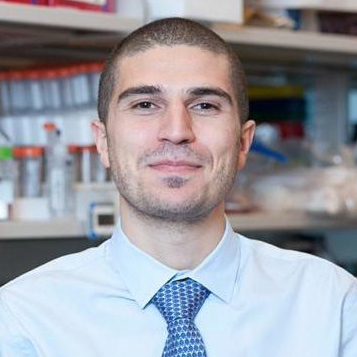
Diaprost will provide world class treatment to prostate cancer by in vivo diagnostic to locatelize prostate cancer tissue and radioimmunotherapy to eradicate prostate cancer and metastases.
Diaprost will provide world class treatment to prostate cancer by in vivo diagnostic to locatelize prostate cancer tissue and radioimmunotherapy to eradicate prostate cancer and metastases.
Prostate cancer (PCa) is the most common type of cancer among men, with over 1 million new incidents per year globally (Cancer Research UK 2012). Although already high numbers, research has revealed that the actual occurrence probably might even be higher, especially among older men. Research reports based on investigations among men that has died of accidental causes (accidents, violence, suicide etc) shows that 15 % of men between 30 and 40 years of age, and up to 80 % of men between 70 and 80 years of age, have cancer related changes in their prostatic tissue. With this background, it is obvious that prostatic tumors are common but rarely develop to an aggressive disease where the tumor spreads to other organs and eventually lead to shortened life.

Prostate specific antigen (PSA) is a protein that is produced exclusively in prostate tissue (including prostatic tumor tissue). Concentration determination of the small amounts of PSA leaking from the prostate tissue to the blood path is used today as a method to establish the risk of prostate cancer (the PSA test). PSA is found in very high levels in the tissue itself (a million times higher than in the blood), and will increase in blood when prostate cancer develops. Furthermore, the PSA concentration in blood is also a parameter to determine how successful the prostate cancer treatment is, i.e. no PSA in the blood, no prostate tissue/cancer left in the body. However, the method does not give any information on location of the cancer.
Imaging by SPECT is currently widely used in clinical settings and the use of PET-imaging is expected to drastically increase over the coming years. In both SPECT and PET the radioisotope uptake is monitored. The radioisotopes are linked to ligands or antibodies in order to target to specific cells and organs.
The imaging platform of Diaprost by PSA specific antibodies has demonstrated a superior specificity in diagnosing prostate cancer cell occurrence.
Radioisotopes are also widely used for therapeutic purposes, in the field of radioimmunotherapy. As in the case with imaging, the isotope uptake is targeted to specific cells, which will be eradicated.
Diaprost´s pre-clinical research results clearly demonstrate specific targeting of PSA and effective prostate cancer cell eradication.


